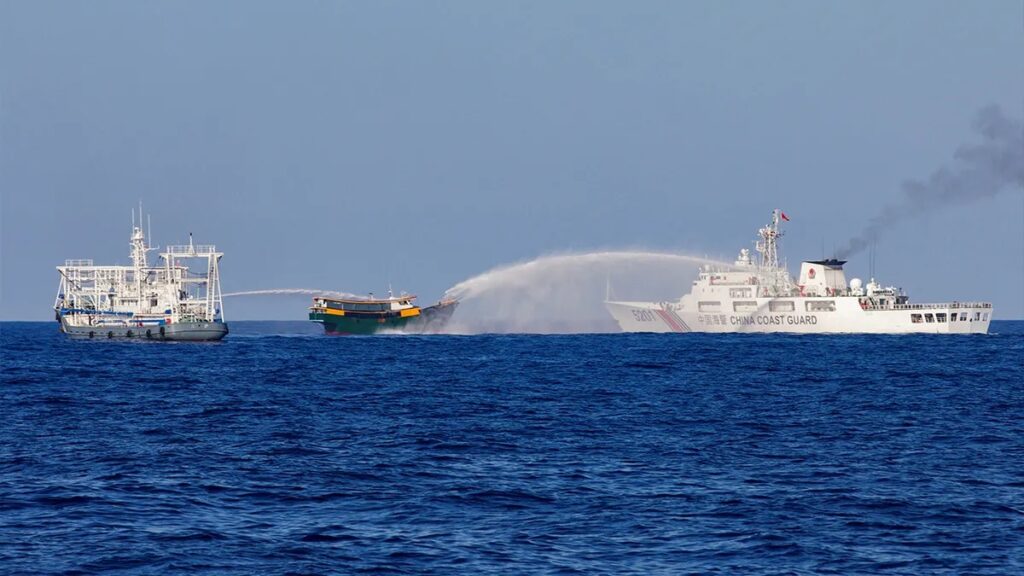On 23 March 2024, Chinese coast guard and maritime militia vessels harassed Philippine civilian vessels on their way to resupply a Philippine military outpost on the Second Thomas Shoal.
This submerged reef in the South China Sea is located in the exclusive economic zone (EEZ) of the Philippines, but China continues to claim it despite the 2016 ruling by the Permanent Court of Arbitration against China’s claims.
This is the second time in March that Chinese government-linked vessels have carried out such actions, injuring Philippine crew members with high-pressure water cannons.
The spokesperson for the European External Action Service criticized these actions that “put human lives at risk, undermine regional stability and international norms, and threaten security in the region and beyond.”
The EU’s support for the Philippines may pale in comparison to that of the United States, with Secretary of State Antony Blinken reaffirming a few days earlier that the US-Philippine Mutual Defense Treaty “extends to any armed attacks on Filipino armed forces, on public vessels, on aircraft…its coast guard…anywhere in the South China Sea.”
The EU, however, has a special role to play in the South China Sea disputes due to its economic and diplomatic power.
Although the United States in the past was reluctant to clarify its security commitment to the Philippines in the South China Sea disputes, the US government since March 2019 has affirmed that the defense obligation applies to Manila’s disputes with China in the water.
When it comes to preventing war against allies, US defense commitments, where applicable, have an impressive track record. Unfortunately for Manila, however, defense pacts do not necessarily protect allies from aggression short of armed attack.
While avoiding activating US alliance obligations, China has been challenging the status quo in the South China Sea and East China Sea. The so-called gray-zone tactics are aggressive but “remain below the level that usually triggers conventional military retaliation.”
This is where the EU comes in. The EU member states cannot decisively alter the military balance of power in the South China Sea, but deterring aggression does not depend solely on military capabilities for intensive conflicts.
China’s coercive behavior in its maritime territorial disputes has so far been primarily gray zone and economic because of Beijing’s concerns about US involvement. In these less militarized areas of coercive diplomacy, Beijing’s desire to maintain good relations with Brussels and EU member states matters.
Granted, if and when China decides to go to war against the Philippines, Taiwan, or others, the EU’s position will not be consequential, because Beijing will have calculated the diplomatic and economic costs before making the decision.
In peacetime, however, Brussels can encourage Beijing to adopt a more cautious foreign policy. This does not have to involve public threats, for example, of economic sanctions against Beijing. Even private communication and restrained statements can be useful although costly signals are better than cheap talk.
Aside from the importance of protecting the free and open international order in the South China Sea and beyond, the EU has much at stake in the Sino-Philippine disputes. Continuing tensions in the water can eventually lead to military escalation and a US military intervention against China.
If a war breaks out between Beijing and Washington, the 23 EU members that are also members of NATO can be drawn into it. Even in the unlikely event that EU members do not have to take any military or economic action against China, the disruption to the global economy can be far greater than that caused by Russia’s invasion of Ukraine.
Therefore, the EU must proactively contribute to the peaceful resolution of China's disputes with its neighbours by rigorously criticising China's gray-zone tactics. This will certainly irritate Beijing but will serve the interests of both China and the EU in the long run.


